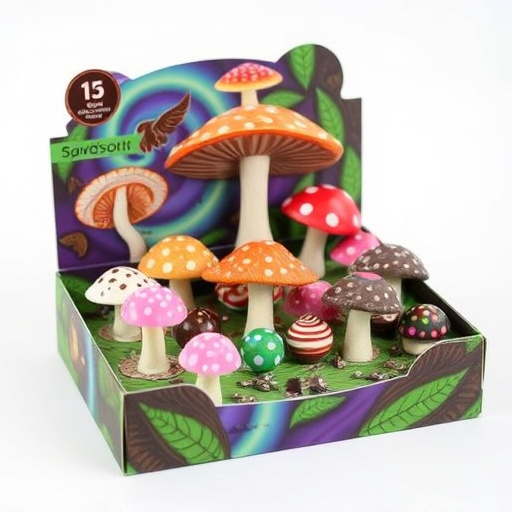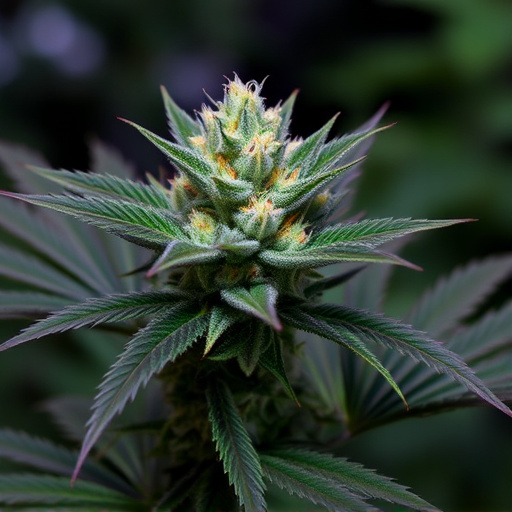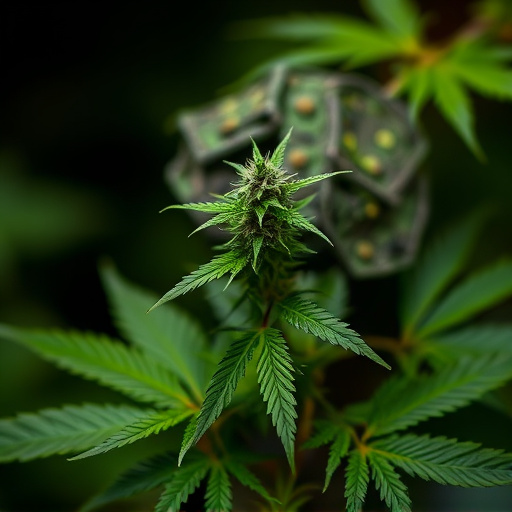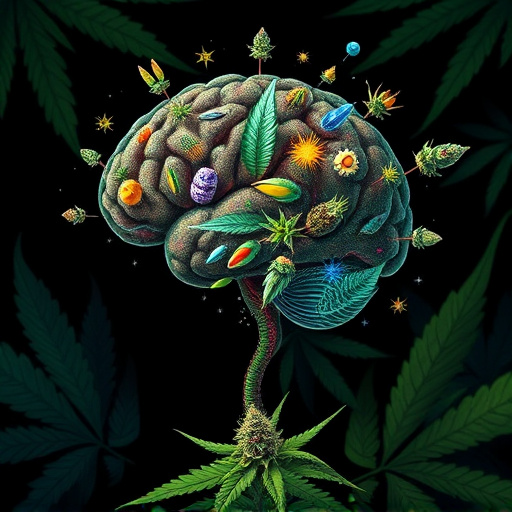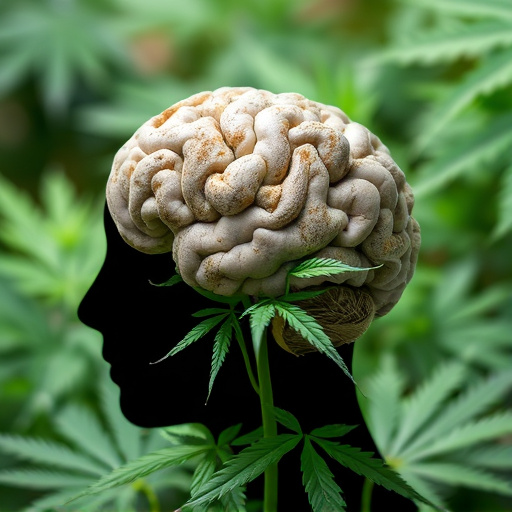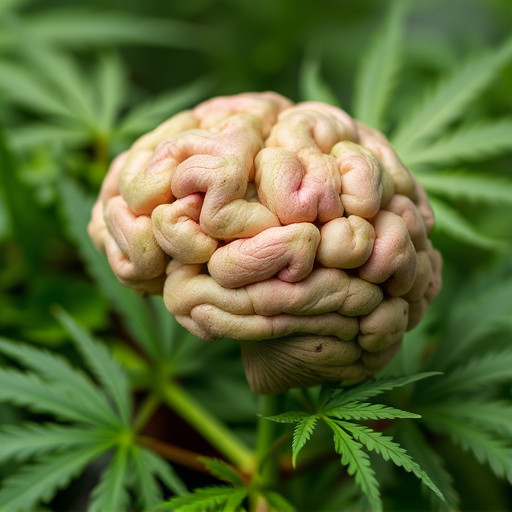Cannabis use brings immediate short-term effects like heightened senses or anxiety, which may resolve as the body metabolizes it. Repeated use can lead to tolerance and dependencies, impacting long-term mental and physical health. Smoking weed chronically increases risks of respiratory issues and links to psychotic disorders, anxiety, and depression. High-CBD cannabis strains are explored for epilepsy management due to their therapeutic benefits without psychoactive THC effects, offering an alternative to conventional treatments.
“Unraveling the complexities of cannabis use, this article delves into the multifaceted effects of smoking weed. From immediate consequences like short-term side effects to profound, long-lasting impacts on both physical and mental well-being, understanding these nuances is paramount. Furthermore, we explore promising avenues in using specific cannabis strains for epilepsy management, shedding light on a potential game-changer in medical treatment. By examining these aspects, readers gain insights into the multifaceted nature of cannabis and its far-reaching implications.”
- Short-term Side Effects of Weed Usage
- Long-term Impact on Physical and Mental Health
- Exploring Cannabis Strains for Epilepsy Management
Short-term Side Effects of Weed Usage
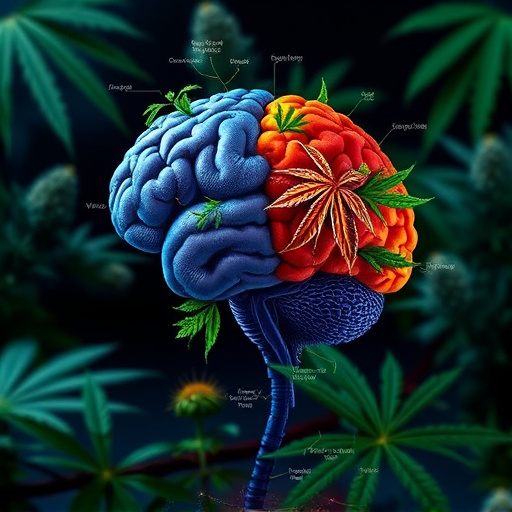
Smoking weed, or using cannabis, can have immediate and noticeable effects, often referred to as short-term side effects. These are typically experienced within a few minutes to a couple of hours after consumption. One of the most common short-term effects is heightened sensory perception, which can intensify colors, sounds, and flavors. This altered state of consciousness may lead to increased creativity and relaxation for some users. However, it can also result in anxiety or paranoia, especially in individuals prone to these conditions. Cannabis strains known for their low THC content and high CBD levels, often marketed as medical options for epilepsy and other conditions, are not immune to these effects.
Other short-term side effects include impaired coordination and motor skills, making simple tasks like walking or gripping objects more challenging. Decision-making abilities may also be compromised, leading to impulsive behavior or difficulty concentrating. While these symptoms usually subside as the body metabolizes the cannabis, repeated use can lead to increased tolerance and potential long-term dependencies, impacting overall mental and physical health.
Long-term Impact on Physical and Mental Health
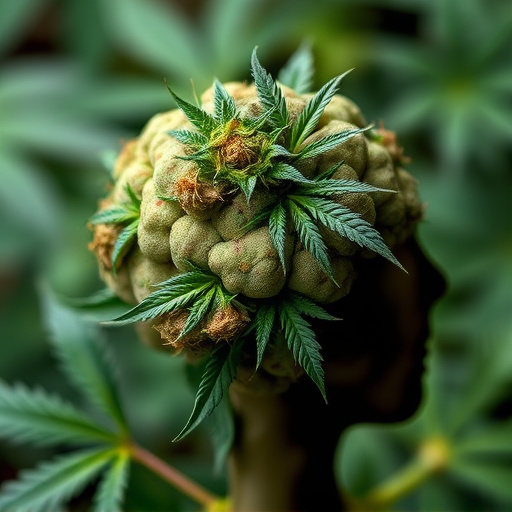
Long-term cannabis use, especially when it comes to smoking weed, can have significant impacts on both physical and mental health. Studies have shown that chronic exposure to smoke and cannabinoids in cannabis can lead to respiratory issues such as chronic bronchitis and reduced lung function, similar to long-term tobacco smoking. These effects are exacerbated by the added risks of inhaling tar and other harmful chemicals present in smoked cannabis.
Beyond physical health, regular marijuana use has been linked to various mental health conditions. Research suggests a correlation between heavy cannabis consumption and an increased risk of psychotic disorders, anxiety, and depression. The active compounds in weed, particularly THC, can alter brain chemistry and affect mood and perception. For individuals with pre-existing mental health conditions or genetic predispositions, long-term use may exacerbate symptoms or trigger new issues, especially when it comes to cannabis strains known for high THC content, such as those popular for treating epilepsy.
Exploring Cannabis Strains for Epilepsy Management
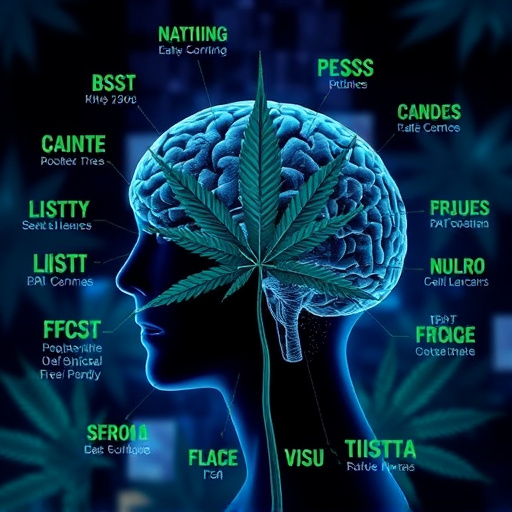
Cannabis has gained attention for its potential in managing various medical conditions, including epilepsy. Exploring specific cannabis strains for epilepsy management is a growing area of interest within the medical community. Research suggests that certain compounds found in cannabis, particularly cannabidiol (CBD), may help reduce seizures and improve overall seizure control in some individuals with epilepsy.
Different cannabis strains offer varying levels of CBD to tetrahydrocannabinol (THC), the primary psychoactive compound. High-CBD strains are often sought after for their potential therapeutic benefits without inducing the intoxicating effects associated with THC. These strains can be particularly beneficial for those looking to manage epilepsy symptoms while avoiding the cognitive and behavioral impacts sometimes linked to traditional pharmacological treatments.
While cannabis, or “weed,” offers potential benefits, especially in managing conditions like epilepsy through specific cannabis strains, it’s crucial to be aware of its side effects. Short-term impacts can include altered perception and cognitive function, while long-term use may lead to respiratory issues, mental health disorders, and dependency. Understanding these effects is essential for making informed decisions about cannabis consumption, particularly when exploring its therapeutic use, like in the management of epilepsy through specific cannabis strains.

